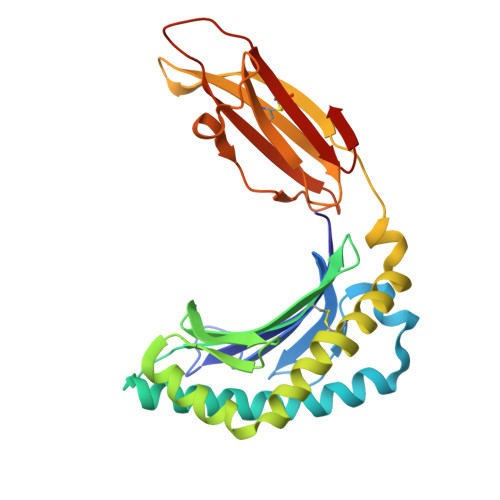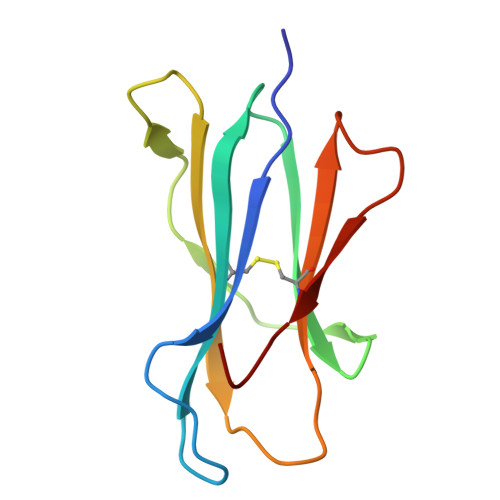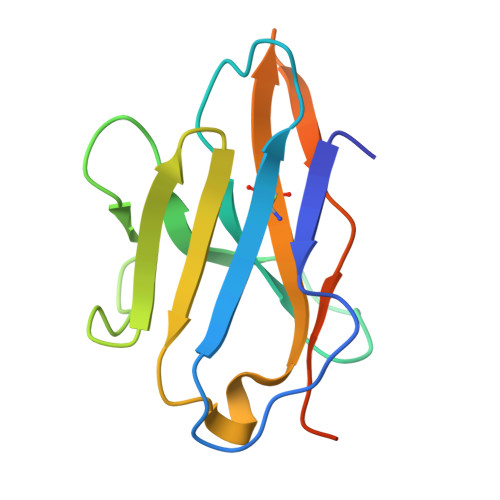CD8 coreceptor engagement of MR1 enhances antigen responsiveness by human MAIT and other MR1-reactive T cells.
Souter, M.N.T., Awad, W., Li, S., Pediongco, T.J., Meehan, B.S., Meehan, L.J., Tian, Z., Zhao, Z., Wang, H., Nelson, A., Le Nours, J., Khandokar, Y., Praveena, T., Wubben, J., Lin, J., Sullivan, L.C., Lovrecz, G.O., Mak, J.Y.W., Liu, L., Kostenko, L., Kedzierska, K., Corbett, A.J., Fairlie, D.P., Brooks, A.G., Gherardin, N.A., Uldrich, A.P., Chen, Z., Rossjohn, J., Godfrey, D.I., McCluskey, J., Pellicci, D.G., Eckle, S.B.G.(2022) J Exp Medicine 219
- PubMed: 36018322
- DOI: https://doi.org/10.1084/jem.20210828
- Primary Citation of Related Structures:
7UMG - PubMed Abstract:
Mucosal-associated invariant T (MAIT) cells detect microbial infection via recognition of riboflavin-based antigens presented by the major histocompatibility complex class I (MHC-I)-related protein 1 (MR1). Most MAIT cells in human peripheral blood express CD8¦Á¦Á or CD8¦Á¦Â coreceptors, and the binding site for CD8 on MHC-I molecules is relatively conserved in MR1. Yet, there is no direct evidence of CD8 interacting with MR1 or the functional consequences thereof. Similarly, the role of CD8¦Á¦Á in lymphocyte function remains ill-defined. Here, using newly developed MR1 tetramers, mutated at the CD8 binding site, and by determining the crystal structure of MR1-CD8¦Á¦Á, we show that CD8 engaged MR1, analogous to how it engages MHC-I molecules. CD8¦Á¦Á and CD8¦Á¦Â enhanced MR1 binding and cytokine production by MAIT cells. Moreover, the CD8-MR1 interaction was critical for the recognition of folate-derived antigens by other MR1-reactive T cells. Together, our findings suggest that both CD8¦Á¦Á and CD8¦Á¦Â act as functional coreceptors for MAIT and other MR1-reactive T cells.
Organizational Affiliation:
Department of Microbiology and Immunology, The University of Melbourne at the Peter Doherty Institute for Infection and Immunity, Melbourne, Australia.





















